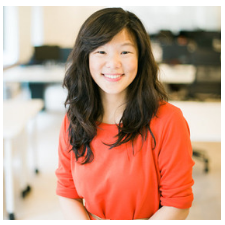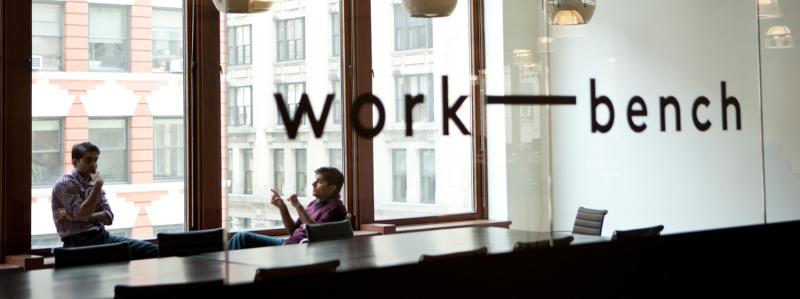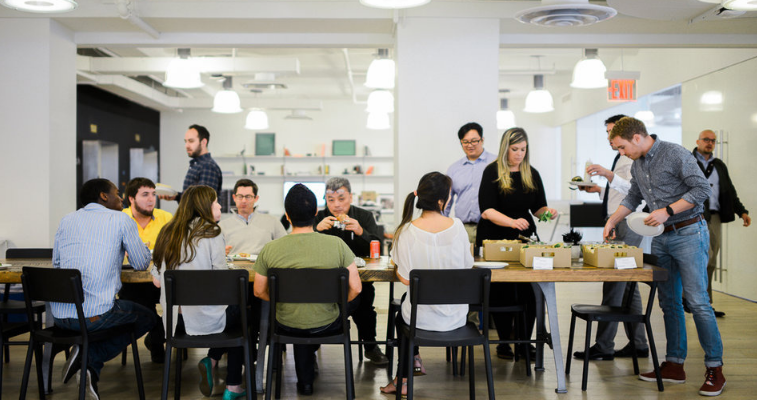The folks over at Work-Bench have been busy. Just last month, they released their 2018 edition of the Enterprise Almanac, a comprehensive overview of key trends developed primarily for the enterprise technology ecosystem. In the week leading up to our interview, they hosted their first (of a hopeful many) Women in Enterprise Sales Dinner and announced a new portfolio investment, all while maintaining a stacked community calendar filled to the brim with lunches, workshops, meet-ups, and panels.

“We have over 200 events a year in our community,” explains Jessica Lin, Co-Founder and General Partner at the fund, which invests primarily in B2B Series A enterprise tech startups. Reaching over 15,000 weekly with their newsletter, Work-Bench finds their self-proclaimed sweet spot at, as she puts it, the ‘intersection of suits and hoodies.’ Which makes sense, considering the scrappy team of six all previously hail from corporate IT; from Morgan Stanley to Forrester Research, or in Lin’s case Cisco Systems.
“[It’s] our secret sauce. We don’t look like traditional VCs who come out of banking, or who were founders” Lin says, going on to explain that the foundation of corporate backgrounds—as well as a healthy dose of ‘underdog mentality’—has led to the fund’s success. “We've hustled to be as helpful to our founders as possible on enterprise sales...it's been a key driver," she said of its unique challenges over the five years.
Founded in 2013 in New York City, Work-Bench was spun out of the networks of its founders, who started paying attention to what was happening in their own backyard instead of ‘going to Silicon Valley and finding cool tech like everyone else.’ The team began asking corporate executives about their pain points and priorities.
“Then we get to go out and simply play matchmaker,” Lin said. “Corporates get to meet the most relevant, vetted technologies that can help them solve business problems, and startups get to close thousand...million dollar deals.” The team’s experiences with enterprise software helped facilitate genuine relationships, bringing corporations and startups together in a way that doesn’t feel transactional.
This is reflected in the companies in Work-Bench’s portfolio as well. They look to invest in the future of work, HR, collaboration, communication, procurement, and anyone else that is “changing the way people work,” Lin explained. “Tech today tends to be doom and gloom, you know—the apocalypse coming with automation and robots [laughs] in the meantime...what technologies can help people get better jobs [and] change how people work for the better” she adds.

Lin’s perspective comes from her experience teaching GED for over ten years. “It’s the most rewarding thing ever, and really really hard,” she said. “[It’s] such a good reminder that the work we do with tech and startups is important, but a small part of the bigger picture. It’s easy to get sucked into that world, but there’s a bigger world out there [with people] who are facing different challenges, and who are working just as hard—if not harder. How can we give back in a way that is meaningful, and share the opportunity that we've been so lucky to have?”
When not volunteering, or whipping up sold-sold out summits, Lin enjoys anything that allows her to turn the computer off, like watercolor painting, exploring new neighborhoods in New York, and sharing recommendations with friends on social media.

